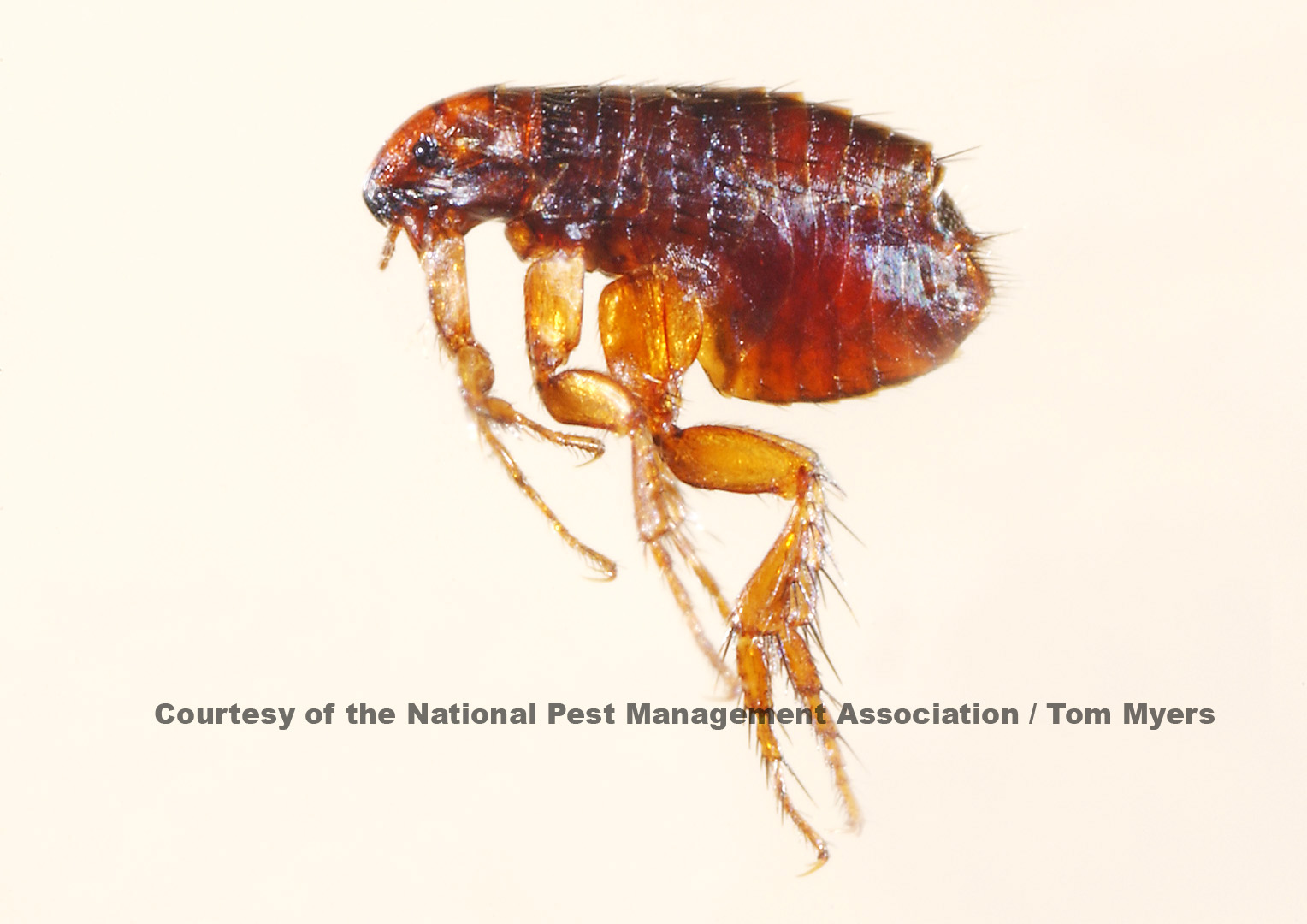Fleas
Did you know? Fleas can remain frozen for a year and survive.
Flea Fact for Kids
Fleas transport themselves on rodents and other mammals, and usually remain on their hosts at all times. The most common species is the cat flea, which often feasts on cats, dogs and humans.
Fleas do not fly. Instead, they jump from one place to another. In fact, fleas can jump as high as 8” vertically, which is 150 times their own height. If we could do this, we would be able to leap over skyscrapers! See below for additional flea facts and information for kids.
- Size: 1/12" to 1/6"
- Shape: Flat
- Color: Dark, reddish brown
- Legs: 6
- Wings: No
- Antenna: Yes
- Common Name: Flea
- Kingdom: Animalia
- Phylum: Arthropoda
- Class: Insecta
- Order: Siphonaptera
- Family: Pulicidae
- Species: Ctenocephalides fellis
Diet:
Fleas are parasites that feed on blood.
Habitat:
Fleas can live on any warm-blooded animal, but seem to prefer to live on humans, cats, dogs, opossums, rats and other rodents. They can also be found on shoes, pant legs, or blankets. Fleas survive the winter by seeking shelter in people's homes! Yuck!
Impact:
Fleas are best known for spreading the Bubonic Plague. They also transmit the bacterial disease murine typhus to humans through infected rats. Their saliva is an allergen that can cause allergic reactions in pets and humans. Fleas can also transfer tapeworms and cause anemia in pets. Flea bites cause painful, itchy red bumps.
Prevention:
- Clean and vacuum frequently.
- Keep your yard clean of garbage and pet droppings.
- Protect pets by keeping them on a leash when outside, give them lots of baths, give them monthly flea and tick treatments and take them to the vet at least once a year to make sure they haven’t been infested.
- If you think you have ticks in your home and property, call a pest management professional!
Teachers can find more kid-friendly facts and information on fleas at the official NPMA website.



